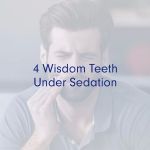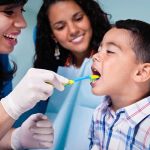
How to Prevent Tooth Decay in Older Adults
- 1. Understanding Tooth Decay in Older Adults
- 2. Factors That Increase the Risk of Tooth Decay
- 3. Daily Habits to Keep Your Teeth Healthy
- 4. The Role of Diet in Tooth Decay Prevention
- 5. Oral Care Products for Older Adults
- 6. Real-Life Stories of Preventing Tooth Decay
- 7. Start Taking Action Now for Healthier Teeth
1. Understanding Tooth Decay in Older Adults
Tooth decay, also known as cavities or dental caries, can occur at any age. However, older adults face specific challenges that make them more susceptible to decay. As we age, our saliva production decreases, and the enamel of our teeth naturally wears down. These factors, combined with certain lifestyle habits, can lead to an increased risk of cavities and other dental issues.
2. Factors That Increase the Risk of Tooth Decay
Several factors contribute to the higher risk of tooth decay in seniors. These include:
- Dry mouth, which reduces the natural cleansing effect of saliva.
- Chronic conditions such as diabetes or heart disease, which can affect oral health.
- Medications that may cause dry mouth or other oral health issues.
- Gum recession, which exposes the root surfaces of teeth, making them more prone to decay.
- Reduced mobility or cognitive decline, which can make regular oral hygiene more difficult.
3. Daily Habits to Keep Your Teeth Healthy
Maintaining good oral hygiene is the cornerstone of preventing tooth decay at any age. For older adults, the following habits are especially important:
- Brush teeth at least twice a day with fluoride toothpaste to remove plaque and food particles.
- Floss daily to clean between teeth and prevent buildup of harmful bacteria.
- Rinse with an antimicrobial mouthwash to reduce plaque and fight gum disease.
- Visit the dentist regularly for check-ups and professional cleanings to catch potential issues early.
4. The Role of Diet in Tooth Decay Prevention
Your diet plays a major role in oral health. Certain foods can either promote or prevent tooth decay. To protect your teeth as you age, consider the following dietary tips:
- Limit sugary snacks and drinks, as sugar feeds harmful bacteria that cause cavities.
- Eat plenty of foods rich in calcium, such as dairy products, leafy greens, and fortified alternatives, to strengthen teeth and bones.
- Drink plenty of water to help keep your mouth hydrated and stimulate saliva production.
- Chew sugar-free gum after meals to help remove food particles and stimulate saliva flow.
5. Oral Care Products for Older Adults
Using the right oral care products can make a significant difference in preventing tooth decay. Some products specifically designed for older adults include:
- Fluoride toothpaste to strengthen enamel and prevent cavities.
- Alcohol-free mouthwash that won’t dry out the mouth, especially beneficial for those with dry mouth.
- Electric toothbrushes that can be more effective at removing plaque, especially for individuals with limited dexterity.
- Oral moisturizing gels or sprays to combat dry mouth and keep the mouth hydrated.
6. Real-Life Stories of Preventing Tooth Decay
Many older adults have successfully managed to prevent tooth decay by adopting healthier habits. For instance, John, a 72-year-old retiree, struggled with dry mouth due to his medications. After switching to fluoride toothpaste, drinking more water, and using a saliva substitute, he was able to maintain healthy teeth and avoid cavities.
Another example is Carol, who noticed gum recession and sensitivity. By switching to a softer toothbrush, incorporating a gentle mouth rinse, and cutting back on sugary snacks, Carol was able to keep her teeth in great shape, preventing further damage.
7. Start Taking Action Now for Healthier Teeth
Preventing tooth decay in older adults is entirely possible with the right habits, lifestyle changes, and products. If you're looking for reliable oral care solutions to protect your teeth and maintain oral health, we invite you to explore our range of specially designed dental care products for seniors. Click here to explore the best oral care products for older adults!







 Babylon Dental Care4.0 (388 review)
Babylon Dental Care4.0 (388 review) Absolute Dental - Lake Mead4.0 (332 review)
Absolute Dental - Lake Mead4.0 (332 review) Dee for Dentist4.0 (173 review)
Dee for Dentist4.0 (173 review) All Family Dental and Braces4.0 (689 review)
All Family Dental and Braces4.0 (689 review) River Ridge Pediatric Dentistry4.0 (369 review)
River Ridge Pediatric Dentistry4.0 (369 review) Cerritos Dental Surgery5.0 (137 review)
Cerritos Dental Surgery5.0 (137 review) The Importance of Oral Health Education During Pregnancy for a Healthy Pregnancy
The Importance of Oral Health Education During Pregnancy for a Healthy Pregnancy Best Tips for Brushing Your Teeth Properly for Healthy Gums: Essential Techniques for Oral Health
Best Tips for Brushing Your Teeth Properly for Healthy Gums: Essential Techniques for Oral Health Why Skipping Dental Checkups Can Lead to Bigger Oral Health Problems
Why Skipping Dental Checkups Can Lead to Bigger Oral Health Problems Advantages of Porcelain Dental Restorations
Advantages of Porcelain Dental Restorations How Can Diabetes Cause Tooth and Gum Problems? Preventing and Managing Oral Health Issues
How Can Diabetes Cause Tooth and Gum Problems? Preventing and Managing Oral Health Issues Healthy Habits for Promoting Good Oral Health and Hygiene: Tips for a Healthy Smile
Healthy Habits for Promoting Good Oral Health and Hygiene: Tips for a Healthy Smile